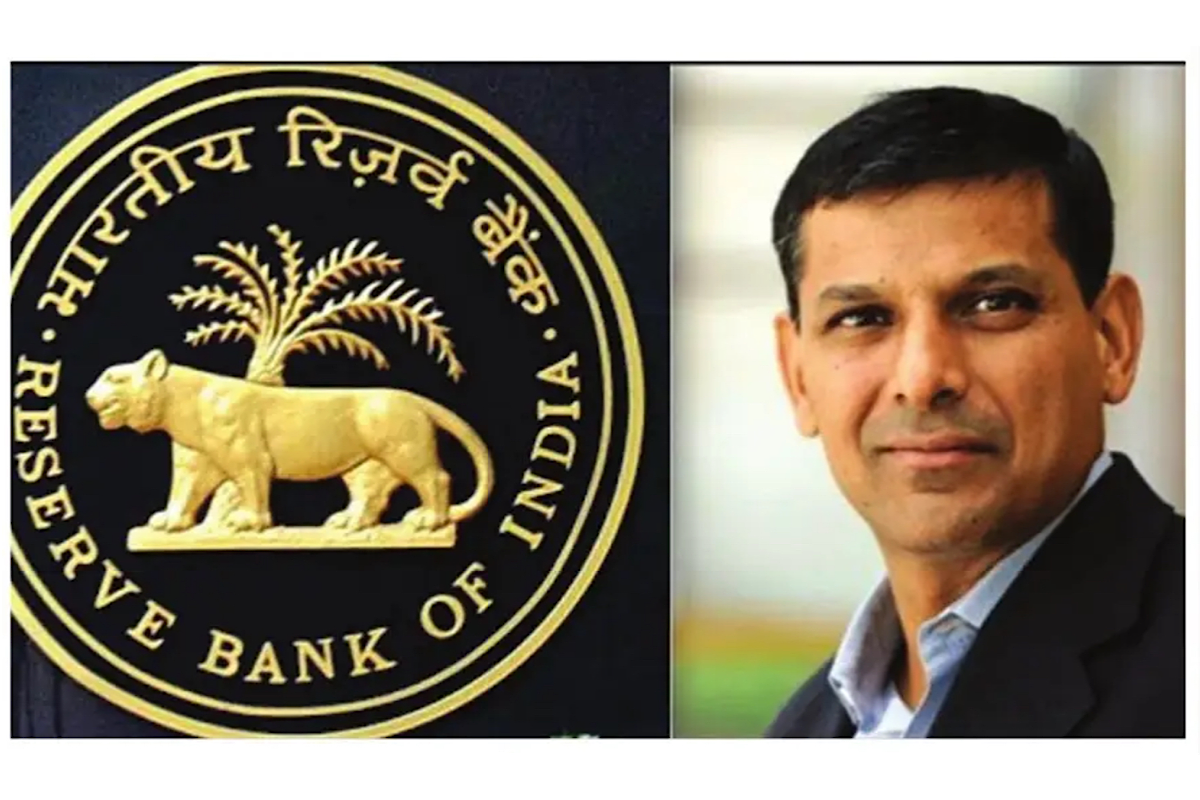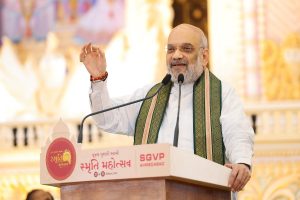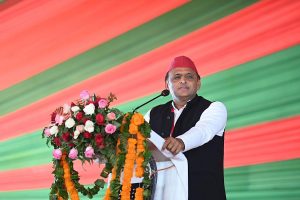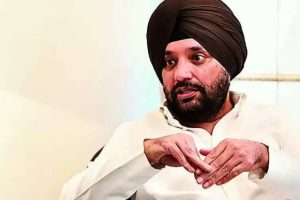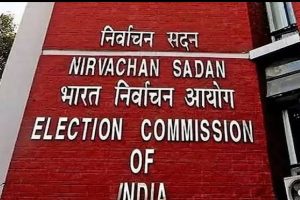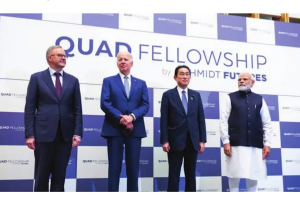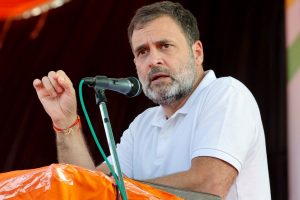The visit of Dr Raghuram Rajan, a former Governor of Reserve Bank of India, and a former Chief Economic Advisor, has generated a great deal of controversy. Known to be both scholarly and acerbic, Dr Rajan has challenged the current narrative of India landing in the company of developed countries in the next twenty-five years.
Also, he has questioned the economic growth trajectory charted by Government economists. No wonder, WhatsApp warriors are baying for his blood. During his governorship of RBI, Rajan became a controversial figure by reason of his tendency to speak out of turn. At the end of his tenure, Rajan revealed that going against tradition, the Government had not offered him a second term of Governorship.
Afterwards, at the time when demonetisation was under challenge in the Supreme Court, Rajan stated that the RBI was against demonetisation, and that he had warned the Government of its potential negative effects. To rub it in, Rajan said “One cannot in any way say it (demonetisation) has been an economic success” ~ a controversial statement, if there was one. Then, Rajan joined the Bharat Jodo Yatra of Rahul Gandhi, which put him squarely in the bête noir category for the present Government. Currently, Rajan is the Katherine Dusak Miller Distinguished Service Professor of Finance at the University of Chicago’s Booth School of Business.
To his credit, even Rajan’s worst enemies do not question his scholarship. Rajan worked as the Chief Economist at the International Monetary Fund between October 2003 to December 2006. At the age of forty, Rajan was the youngest person, and the first born outside the West, to be appointed to this position.
At the 2005 Annual Jackson Hole Conference, Rajan warned of the 2007-2008 economic meltdown ~ more than two years before it actually hit the US. Going against extant economic thinking, Rajan warned about the growing risks in the financial system, and suggested policies to counter them. Rajan was widely castigated for his counterintuitive views, with a former U.S. Treasury Secretary Lawrence Summers calling the warnings “misguided” and Rajan himself a “luddite” (member of a 19th-century movement of English textile workers which opposed the use of cost-saving machinery, often by destroying the machines in clandestine raids).
However, Rajan’s intelligence was lauded, and brickbats turned to bouquets, when the financial crisis actually unfolded, as predicted by him. The 2010 Academy Awardwinning documentary on the meltdown, ‘Inside Job’, extensively features Rajan. Probably with an eye on promoting his newest book “Breaking the Mould: Reimagining India’s Economic Future,” Rajan has given a series of interviews to newspapers and periodicals.
Rajan’s narrative, in essence, is that given a growth rate of 6 per cent, India’s per capita GDP will quadruple in the next twenty-four years to US$10,000, placing it in the lower middleincome category and not in the developed economy bracket. Rajan also said that with the demographic dividend running out by that time, India will ‘grow old before it grows rich.’
According to Rajan, the Indian economy needs a much higher rate of growth, to achieve the status of a developed country in the next twenty-five years. Flagging unemployment as the biggest socio-economic problem, Rajan wants Government to focus on development of human capital and eradicate social evils like malnutrition. Rajan also made some controversial statements about election funding.
Rajan’s book suggests that rather than manufacturing, the services sector can be a much better driver for the growth of the Indian economy. What Rajan said, is based more on common sense and basic arithmetic; in this context, readers will remember ‘Our Amrit Kaal’ (The Statesman, 27 September 2023). Taking Rajan’s criticism constructively, the Government could improve its economic management.
For example, Union Budget expenditure doubles every three years but commensurate output is not noticed. Then, though the largest component of the Union Budget, more than forty per cent, regularly goes to the more than seven hundred Central Schemes, aimed at promoting social welfare and social security, over the years, little of their purpose seems to have been achieved. Interestingly, the Fifteenth Finance Commission, in its report tabled in Parliament on February 1, 2021, had questioned the efficacy of Central Schemes and recommended a third-party review of all such schemes. In a significant shortcoming, hardly any novel initiative has been brought in to increase agricultural productivity, which is the key to the country’s economic development.
Rajan is an acclaimed economist, and not an overtly political person. The advice he has for the Government is definitely for the benefit of the Indian people. Even otherwise, Governments should err on the side of caution; a time period of twenty-five years is too long to make an accurate prediction ~ there may be wars, disturbances, technological innovations, and pandemics in the interregnum. Unfortunately, the mandarins of North Block do not appreciate any criticism of their theories or actions.
Till date, no economist worth his salt has taken on Rajan, and it has been left to trolls to puncture Rajan’s narrative in any manner they can ~ mostly in underhand ways. Rajan is alive to their machinations, saying: “…it was an ‘organised effort’ and “I don’t even see them.” Earlier in 2016 when Rajan was the RBI Governor, Subramanian Swamy had mounted a personal attack on him. Choosing not to join issue, Rajan simply said: “There are certain allegations which are fundamentally wrong and baseless and addressing them would amount to giving them legitimacy.”
Rajan further clarified that he “welcomes genuine criticism of our policy, but will not address ad hominem attacks.” The controversy over Rajan gives rise to the question of the Government listening patiently and not stifling contrarian voices and honouring the timeless dictum of the opposition having its say, before the Government has its way.
As such, this quality seems to be lacking in the present dispensation, which the suspension of a record 141 opposition MPs, would show. The intolerance to criticism can be understood by the words of BJP MP Hema Malini, who said, “They keep raising questions and displaying strange behaviour. So, they have been suspended.” The value of dissent has been understood since ancient times.
According to the Ramcharitmanas: “If influenced by greed or fear a guru praises his shishya unnecessarily, then dharam is destroyed, likewise if a physician does not tell the truth to his patient then the body is destroyed, and if a minister does not give true advice to the King, then a kingdom is destroyed.” In modern times, US President Theodore Roosevelt equated healthy dissent with patriotism: “Patriotism means to stand by the country.
It does not mean to stand by the president or any other public official, save exactly to the degree in which he himself stands by the country. It is patriotic to support him insofar as he efficiently serves the country. It is unpatriotic not to oppose him to the exact extent that by inefficiency or otherwise he fails in his duty to stand by the country. In either event, it is unpatriotic not to tell the truth, whether about the president or anyone else.”
One hopes that as democracy takes root in our country, both the Government and the opposition will appreciate the nuances of principled dissent.
(The writer is a retired Principal Chief Commissioner of Income-Tax)

